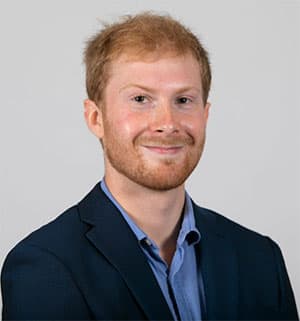Ryan is a first year MB-PhD student in the labs of Dr Ed Roberts (GLA) and Dr Tak Kitamura (EDI). His project focuses on a phenomenon called myeloid skewing where immune cell production shifts towards the bone marrow. He is investigating how this affects the anti-tumour response of the immune system.
Why did you choose to do a MB-PhD and what attracted you to the TRACC programme?
I have always orbited the world of cancer research from the start of my medical studies, however it was not until my intercalation that I got first-hand experience of life within a laboratory. I absolutely loved it, and wanted to do more, re-engaging with a mind-set of curiosity that can be eroded somewhat in the single-best-answer culture of medicine. The TRACC programme was perfect in creating a time solely dedicated to research, without the wider responsibilities of medicine to juggle, whilst also keeping a keen eye on the wider inter-relational context of research and medicine. It allows complete freedom to comprehensively explore from bench to bedside.
How did you select your project?
I read the briefs of projects that were sent to me – we were in a unique position of being able to select projects, and having an abundance to choose from; rather than us applying for a supervisor, the supervisors were applying to take us on! After reviewing the briefs, selecting a shortlist of topics that interested me and reading around the topics further, I then arranged a series of chats with each of the supervisors to see if I would be a good fit for them. I also chatted with the members of their lab.
Do tell us a little bit about your PhD project
My PhD project involves exploring how immune challenge can result in long-term changes to the immune system, and therefore impact the body’s ability to fight a tumour. Simplistically put – can getting something as simple as the flu impact how you respond to cancer?
What has it been like so far? Is there anything you found challenging?
It has been incredibly interesting. There has been a tremendous amount of freedom, and so you are able to do experiments, analyse data and make discoveries at your own pace. However, this also means that you need a lot of self-motivation and commitment, especially since the TRACC is three years as opposed to four. Yet, with a multitude of wonderful, like-minded people to support you, who are equally as passionate about your subject and your next discoveries, that task becomes easier.
What advice would you give to someone applying for the programme?
My main piece of advice for future candidates would be to be passionate, and to express that passion in your application, and in your conversations with the people around you. You are applying to become a part of a community of like minded minds who love what they do, and share your curiosity.
